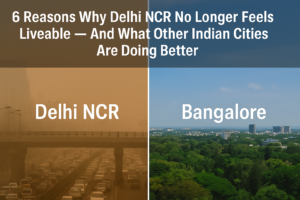Why All Eyes Are on Rafah: Israeli tanks attack southern Gaza despite global outcry
New Militant Group Emerges in Rafah
The tiny Palestinian town of Rafah, home to around 200,000 people, has suddenly found itself at the center of global attention and a potential flashpoint in the decades-old Israeli-Palestinian conflict. Situated right on the border between the Gaza Strip and Egypt’s Sinai Peninsula, Rafah has long been an important crossing point between the two territories for people and goods.
However, recent events in this unassuming town have catapulted it into the international spotlight. The focus stems from the emergence of a new Palestinian rebel group called the “Rafah Battalions” or “Rafah Resistance.” This militant faction, which broke away from the mainstream Palestinian factions like Hamas and Fatah, has been carrying out a wave of audacious attacks against Israeli forces in and around Rafah in recent months.
Hardline Tactics Raise Concerns
What makes the Rafah Battalions particularly concerning to regional powers is their seemingly relentless tactics and hardline stance against Israel. The group has taken responsibility for over a dozen deadly raids on Israeli army patrols and installations near the border areas. They have also launched dozens of rocket and mortar attacks into southern Israel.
Even Hamas, the larger militant group which has controlled Gaza since 2007 and been branded a terrorist organization by many Western nations, has attempted to rein in these upstart Rafah rebels through a combination of negotiation and military force. But the Rafah Battalions have remained defiant, intensifying their operations lately while also attempting to increase recruitment among disaffected Palestinian youth.
Israeli Retaliation and Risk of Escalation
Israel has responded to the Rafah Battalions with overwhelming military force. The Israeli Defense Forces (IDF) have conducted numerous air strikes on suspected Rafah Battalion bases and weapons caches in Rafah and other parts of Gaza. They have also carried out several ground incursions and deployed additional troops and tanks to the border area.
The tit-for-tat violence has led to rising civilian casualties on both sides and prompted fears that this localized conflict could escalate into another full-blown Gaza war like the ones in 2008-09, 2012 and 2014 that devastated the coastal strip. Hamas has been forced into an uncomfortable position of trying to both restrain the Rafah Battalions to avoid an all-out Israeli invasion, while also not appearing too cooperative with Israel.
Egypt has also gotten involved in the Rafah crisis, temporarily shutting down the vital Rafah border crossing while accusing Palestinian militants of arming themselves via a network of underground tunnels and smuggling routes in the area. This has exacerbated the already dire humanitarian situation in Gaza.
International Diplomacy Falters
For the international community desperate to avoid another Israeli-Palestinian war, Rafah represents the latest dangerous fault line in the perpetual struggle to calm tensions and work towards a peace agreement. The United States and European allies have strongly condemned the Rafah Battalions’ tactics as needlessly provocative, while simultaneously calling for restraint from Israel to avoid civilian casualties.
However, with both the Rafah militants and Israel seemingly digging in, diplomatic efforts from the UN, Arab states and others to resolve the crisis have faltered so far. Past experience has shown how quickly localized flare-ups in the region can spiral out of control despite international mediation attempts.
Conclusion: Residents Caught in the Crossfire
As such, all eyes remain fixated on the besieged town of Rafah and whether this tinderbox situation can be extinguished before it sets off a far wider conflagration across the Israeli-Palestinian territories and perhaps the entire region. No diplomatic solution appears imminent.
For the long-suffering Palestinian residents of Rafah, who have endured decades of conflict, occupation, and economic privation, the renewed heavy fighting and international spotlight has only compounded their precarious existence caught in the perpetual crossfire.
Many have begun fleeing Rafah as israel’s bombardment intensifies, setting up temporary shelters in UN-run schools and other facilities across Gaza.
Unless a resolution emerges soon that can convince the Rafah Battalions to stand down while also allowing Israel to step back from its intensive military campaign, the Palestinian town risks being remembered as the tragic spark that set off another devastating cycle of bloodshed rather than a potential path towards peace between the two peoples. The world can only watch and wait as tensions continue simmering in Rafah.
Also read our blog: Israel Iran tensions: Explosions as ‘drones downed’ over Isfahan




#Alleyesonrafah